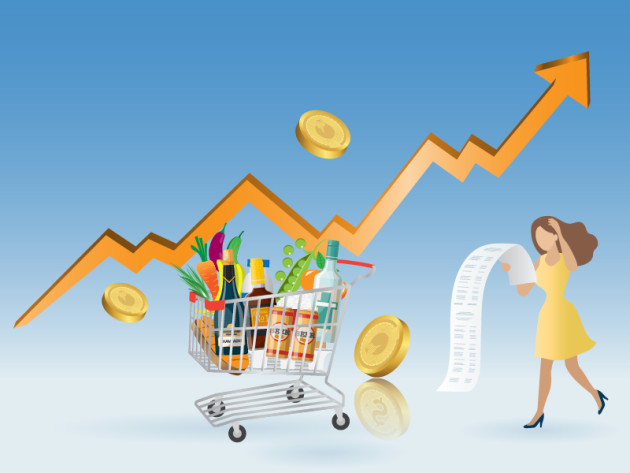
The drinks trend casualties in the cost-of-living crisis
As we hover on the edge of a possible recession, with inflation reaching a 40-year year high in June, it’s no surprise that UK consumers are tightening their belts.
The latest research from IPA Touchpoints, a leading database which offers insights into the daily life and habits of GB consumers, has confirmed how much the balance of buying cues shifted during the first quarter of 2022.
According to the Touchpoints 2022 data, compiled by tracking the buying behaviours of 3,000 adults, confidence in the market reached an uncomfortable low in the first quarter. Almost 85% of adults were aware of the price of goods and services increasing, and the number of adults feeling confident about the economy fell 49.8% between pre-lockdown 2020 and the start of 2022.
Things have also worsened in the past year. As figures exclusively obtained by Harpers shows, 17% of UK adults said they were increasingly aware of the price of goods and services in 2022’s first quarter – and this is set against the corresponding period at the beginning of 2021, when the UK was in a national lockdown and also suffering economic pessimism. Meanwhile, the number of UK adults coping on their current salary has reached a two-year low, from 67% in pre-pandemic 2020 to 69% in 2021 and 63% in 2022.
It’s a stark state of affairs – and yet, one we’re not entirely unused to. With the 2007/08 recession to act as a blueprint, we know that premium wines and spirits tend to do well through times of economic stress as treating behaviour and spending on affordable luxuries kicks in. In 2022, we are starting to see the same buying behaviours taking shape. Increasingly, brands in the squeezed middle ground will be forced to choose an entry-level or premium camp, with buying cues around sustainability likely to be some of the worst casualties.
“As budgets become increasingly squeezed, areas such as sustainability, non-GM and organic, which some brands may have used as part of their core brand offering, may become less important to consumers,” Simon Frazier, head of TouchPoints marketing & data innovation, said. “And this is true across both the FMCG and drinks industries where they may be considered nice to have as opposed to imperatives. Instead, brands may look to highlight the value for money or the quality of their product.”
Clearly, it is vital at the moment to read the room. If the mid-market is where a majority of consumers exist, luxury and purpose-driven initiatives such as organic and sustainable become less important to consumers as budgets are squeezed.
It could cause upset at the higher end, too. In times of uncertainty, Frazier stresses that brands must make sure they “align with consumer sentiments and don’t over-prioritise credentials such as sustainability [while being] premium offerings, when these may be seen as optional luxuries”.
Such predications are backed up by parallel trends in food, too. Though drinks is its own beast, the Touchpoints data specifically shows how the number of adults preferring to eat organic food fell by almost a third in early 2022 versus 2020, particularly among younger generations and women, who are also some of the worst affected when it comes to salary confidence and burdensome debt.
Things are likely to intensify – aka worsen – before they improve. Since the year’s first quarter, the UK’s inflation rate has been pushed to a 40-year high as rising food prices and the cost of living intensified amid transit and supply chain disruption.
“We can only imagine with rising inflation levels and the clouds of a recession beginning to bubble up, that such stats will become bleaker,” says Belinda Beeftink, research director at IPA – the trade body which produces Touchpoints.
Premium drinks brands have benefited from the shift to quality over quantity over the past several years. That continued over the course of the pandemic and is likely to continue during these latest economic hurdles. However, the message is clear. Businesses at all levels “must be seen to be in tune and supportive of their consumers at this tough time”, Beeftink concludes.
Keywords:
- buying
- UK
- premium
- year
- consumers
- first
- GB
- increasingly
- GM
- IPA
- quarter
- first quarter
- uk adults
- adults
- touchpoints
- buying behaviours
- buying cues
- 08 recession
- affordable luxuries kicks
- buying behaviours taking
- behaviours taking shape
- shape increasingly brands
- taking shape increasingly




